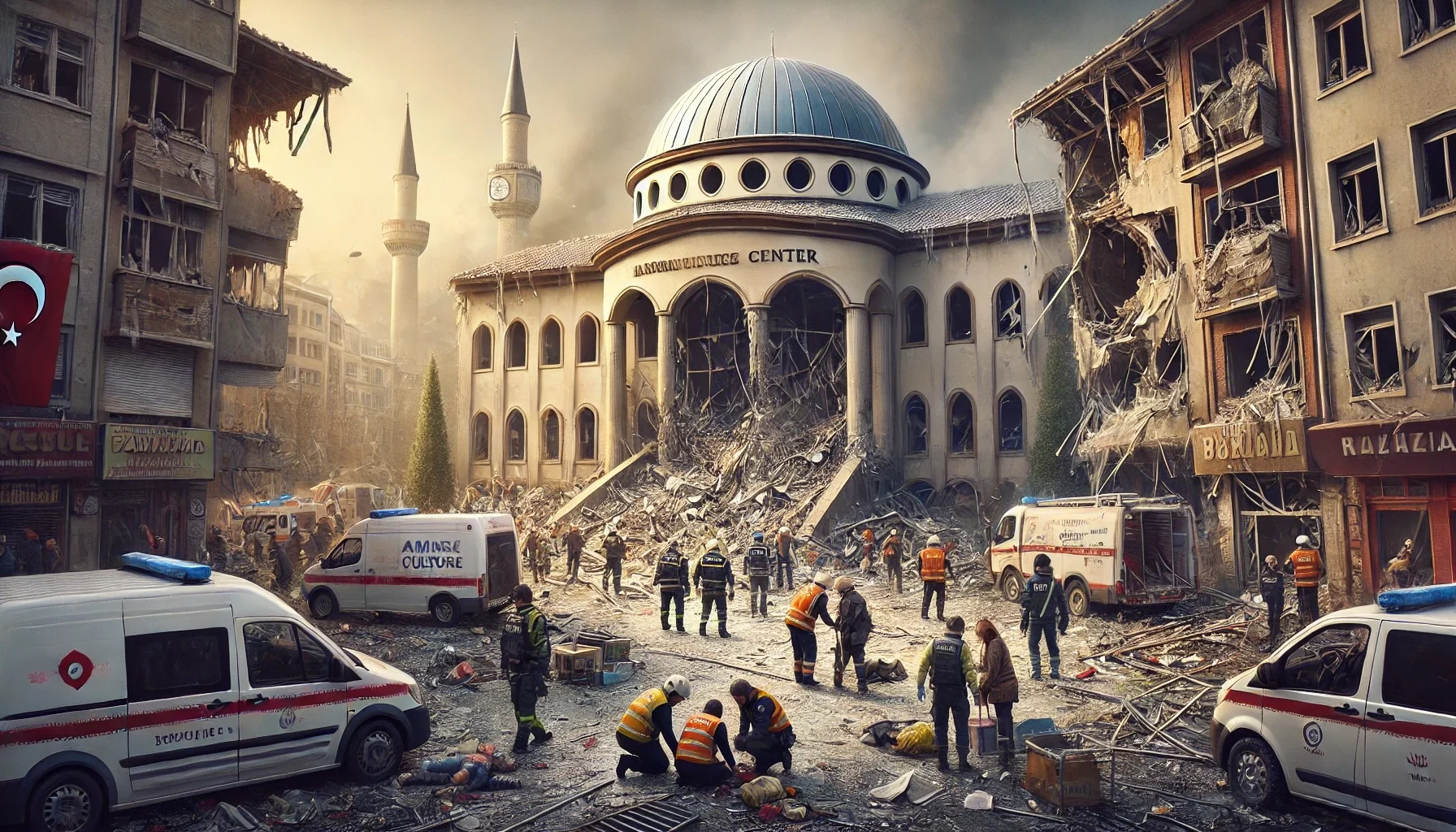
The 2015 Suruç Bombing
by: The Calamity Calendar Team
July 20, 2015
The Gathering of Hope
On the morning of July 20, 2015, the Amara Culture Center in Suruç, a town near Turkey’s border with Syria, buzzed with activity. Approximately 300 young activists from the Socialist Youth Associations Federation (SGDF) had convened, full of hope and determination. Their mission was to travel to Kobani, a nearby Syrian town recently liberated from ISIS control, to assist in its reconstruction and deliver much-needed humanitarian aid. The group’s spirit was high as they prepared for the journey, embodying the solidarity and resilience that had characterized the Kurdish resistance against ISIS.
A Tragic Turn of Events
As the clock struck noon, the air filled with the sound of impassioned speeches and discussions. Suddenly, this hopeful atmosphere turned into a scene of horror. A suicide bomber, later identified as an ISIS operative, detonated explosives amidst the crowd gathered in the garden of the culture center. The explosion was powerful and immediate, causing chaos and devastation. Bodies were strewn across the area, cries of pain and confusion filled the air, and the garden, once a place of peace, became a scene of tragedy.
Immediate Aftermath
First responders and security forces quickly arrived at the scene, but the damage had been done. The bombing claimed the lives of 34 young activists and injured over 100 others, many of them critically. The injured were rushed to nearby hospitals where medical personnel worked tirelessly to save lives. Meanwhile, authorities cordoned off the area, beginning the grim task of investigation and rescue operations amidst the wreckage.
Thanks for subscribing!
The Broader Impact
The Suruç bombing was not just a local tragedy; it had broader implications for Turkey and the region. The attack occurred during a period of heightened political tension in Turkey, where the peace process between the government and the Kurdistan Workers’ Party (PKK) had recently collapsed, leading to renewed violence. The bombing exacerbated these tensions, fueling further conflict and unrest between Turkish authorities and Kurdish communities.
Heightened Security and Investigations
In the days following the bombing, Turkish authorities intensified security measures in Suruç and surrounding areas. Investigations swiftly pointed to ISIS as the perpetrators, a claim later confirmed by the terrorist group itself. This act of terror underscored the growing threat of ISIS in the region and the complex dynamics of the Syrian conflict spilling over into Turkey.
A Turning Point in Regional Conflict
The Suruç bombing marked a significant turning point in the regional conflict. The Turkish government responded with increased military operations against ISIS and renewed efforts against the PKK, complicating the already volatile situation. The attack also highlighted the dire situation for Kurdish activists and the ongoing humanitarian crisis in the region, drawing international attention and calls for greater support.
Remembering the Victims
The 2015 Suruç bombing remains etched in the collective memory of those affected. The victims, primarily young and passionate activists, were remembered not only for their tragic end but also for their commitment to peace and reconstruction. Their legacy is a reminder of the resilience and hope that persists even in the face of such horrific violence.
Ongoing Implications
Today, the Suruç bombing is a stark reminder of the volatile intersection of regional conflicts, terrorism, and political unrest. It continues to influence security and stability in Turkey and the broader Middle East, highlighting the ongoing challenges in combating terrorism and supporting vulnerable communities caught in the crossfire.
In the wake of the Suruç bombing, the international community has been called upon to support efforts for peace and stability in the region. The attack’s tragic outcome underscores the urgent need for effective counter-terrorism strategies and humanitarian aid to prevent such horrors from recurring. The memory of those lost in Suruç serves as a powerful testament to the enduring human spirit and the relentless pursuit of a better future, even in the darkest times.
Stay in the Loop!
Become a Calamity Insider and get exclusive Calamity Calendar updates delivered straight to your inbox.
Thanks! You're now subscribed.